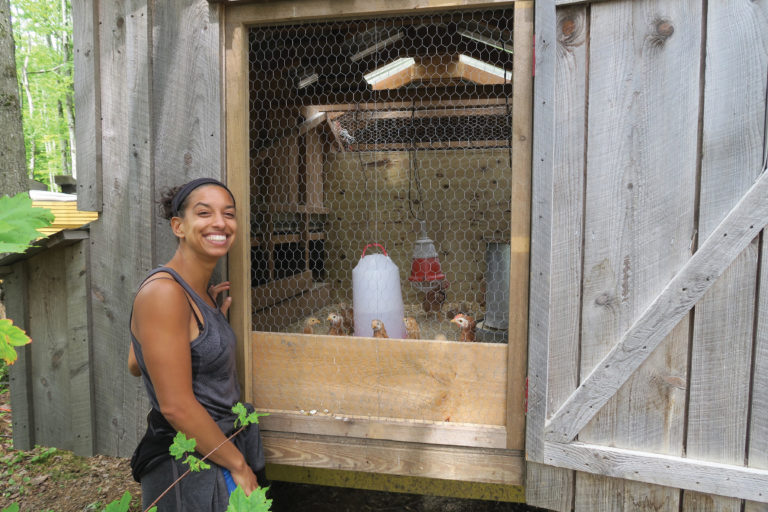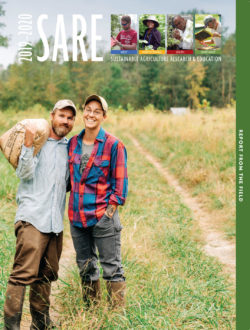"This project is about supporting farmers and bringing fresh food to people who otherwise would not have access, while at the same time maintaining a financial bottom line that supports our families."
Leah Penniman, Soul Fire Farm
THE CHALLENGE
Many farmers want to provide food to low-income families in their communities but struggle with the balance of offering lower prices for their products while maintaining their farms’ economic viability. They can have difficulty finding business models that show them how to successfully balance their economic needs with their social justice goals. But Leah Penniman and her team at Soul Fire Farm in Grafton, N.Y., were determined to learn how they and other farmers could serve low-income communities while maintaining farm financial viability.
THE ACTIONS TAKEN

With funds from a SARE Farmer grant, Penniman and her team began their efforts by participating in neighborhood association meetings in communities that struggle with food access, and they heard from more than 130 residents. In addition, the Soul Fire Farm team surveyed all 80 members of their CSA and reached out to eight fellow farmers who also serve low-income customers. Their research found a number of barriers to local food access, including food costs, lack of transportation and lack of accessible markets selling local, fresh and nutritious foods.
Through their own experimentation and through interviews with other farmers, the project team learned that farmers can overcome these barriers by using a number of strategies: community and nonprofit partnerships, government grant and subsidy programs, community outreach and relationship building, accessible distribution approaches, and collaboration with other farmers. With this understanding, the team created a manual of best practices for farmers interested in expanding their farm operations to better meet the needs of low-income communities.
THE IMPACTS
- Practical training: The Sowing the Seeds of Food Justice manual was published in 2018 and has been distributed to thousands of people through farmer networks and social media; a curriculum was developed to train more than 200 farmers in 2018.
- Widespread outreach: Project results were shared with 500 farmers through a combination of trainings, consultations, tours and public events.
- Taking action: More than 10 farmers have been in contact with the team to discuss specific changes they can make to implement the best practices offered in the manual.
Visit the database of project reports to learn more about this SARE-funded project: FNE17-879.
